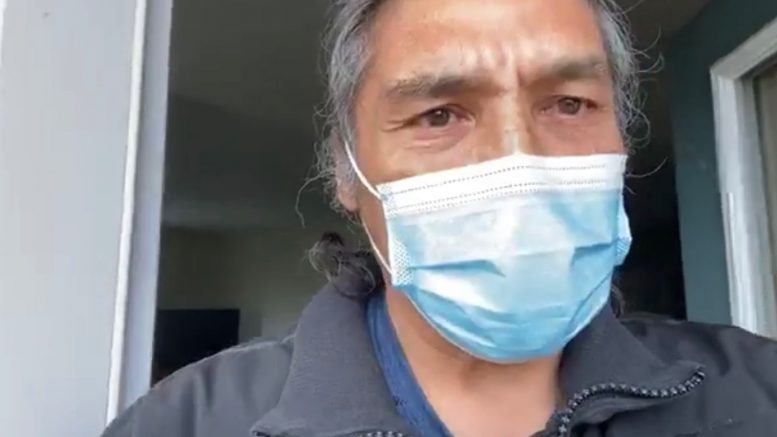By Jeremy Appel, Local Journalism Initiative Reporter
(ANNews) – The Athabasca Chipewyan First Nation (ACFN) and Mikisew Cree First Nation (MCFN) have signed an agreement with the federal government to protect and restore the habitats of boreal caribou in northeastern Alberta.
The agreement to protect the boreal caribou, also known as woodland caribou, was signed by the three parties on March 9. The species has been considered threatened since 2002.
The woodland caribou population has decreased by 50 per cent from 2012 to 2017 in the Regional Municipality of Wood Buffalo, Fort McMurray Today reported.
“In order to protect caribou, we need to protect habitat. They’re such a sensitive species to noise and disturbance, and that’s why their decline is so rapid,” Melody Lepine, director of MCFN, told Fort McMurray Today. “A 50 per cent decline in such a short period of time is something we’re not really responding to.”
Although the agreement covers northeastern Alberta, boreal caribou are found in every province and territory except for Nunavut and the three southern Maritime provinces, stretching from the northeast corner of Yukon Territory towards Labrador and Lake Superior.
A 2020 federal report notes the “recovery of all boreal caribou local populations across Canada is technically and biologically feasible.” Lepine said the goal is to protect about 65 per cent of caribou habitat across Canada.
Athabasca Chipewyan First Nation Chief Allan Adam identified protecting the boreal caribou is an important part of his people’s culture.
“The caribou are an integral part of our Indigenous culture and Treaty Rights, and of significance in our Dene history and traditions,” Adam said in a statement. “Ensuring a sustainable future for boreal caribou honours both our past, present and future relationship with the caribou.”
The agreement offers federal support for developing an Indigenous stewardship plan for protecting their local woodland caribou populations.
There are four local caribou ranges included within the agreement:
- West Side Athabasca River Range, stretching from Fort McKay and Calling Lake towards Red Earth
- East Side Athabasca River Range, reaching south from the RMWB’s southern hamlets towards CFB Cold Lake and Lac La Biche
- Richardson Range, located northeast of Fort McMurray and Fort McKay
- Red Earth Caribou Range, covering much of the area south of Wood Buffalo National Park and north of the West Side Athabasca River Range
MCFN Chief Peter Powder told Fort McMurray Today that the plan’s implementation is anticipated for the 2023-24 fiscal year, and will be locally-operated and include graduates of Keyano College’s environmental studies program.
“This will be managed by MCFN and ACFN. We’d be the knowledge holders. This is really important to keep them from going extinct,” Powder said. “Elders have told us the caribou need help and need protecting, so this is one way we’re protecting them.”
Powder told CTV News that protecting the woodland caribou and respecting Indigenous Treaty Rights go hand-in-hand.
“This agreement creates new ways for us to work in partnership with Canada that we hope will finally lead to a secure future for boreal caribou and their habitat for future generations,” Powder said.
Environment and Climate Change Minister Steven Guilbeault said the agreement supports “community-based stewardship with tangible actions on the ground, while advancing reconciliation.”
“Indigenous Peoples have protected nature since time immemorial, and our government is committed to supporting Indigenous leadership in conservation,” Guilbeault told CTV in a statement.



Be the first to comment on "Two First Nations sign boreal caribou protection agreement with feds"